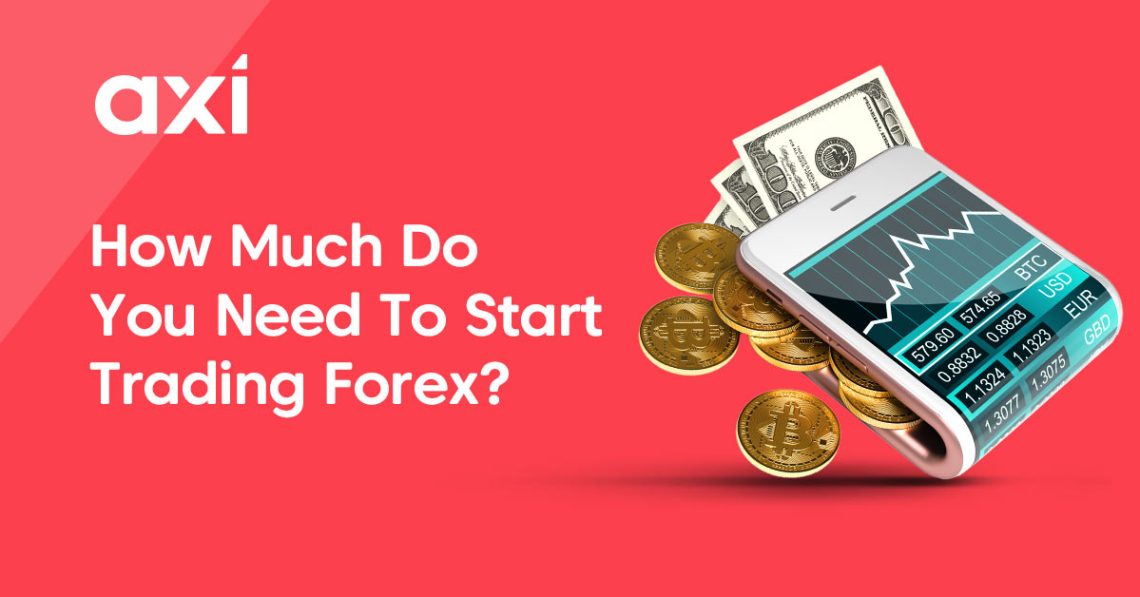Forex trading. The world of currency exchange, often perceived as a high-stakes game reserved for Wall Street tycoons. But is that really the case? Does diving into the forex market require emptying your bank account? The truth might surprise you. Let’s explore how much capital you actually need to start trading forex and debunk some common misconceptions along the way.
Understanding the Initial Investment for Forex Trading
So, you’re curious about forex trading, huh? Good for you! One of the first questions everyone asks is: “How much money do I need to even get started?” The answer isn’t as scary as you might think. It really depends on a few factors, primarily your risk tolerance and the type of account you choose.
Minimum Deposit Requirements for Forex Trading
Many brokers offer “micro” or “cent” accounts, which allow you to start trading with as little as $10 or even less! Yes, you read that right. These accounts let you trade tiny positions, minimizing your risk while you learn the ropes. Think of it as dipping your toes in the water before diving into the deep end.
However, keep in mind that while a small initial deposit is appealing, it also limits your potential profits and your ability to withstand market fluctuations. A larger initial investment, while riskier, provides more flexibility and opportunity.
Factors Influencing How Much Money You Need for Forex Trading
Okay, so we know you can start small, but what should you start with? Several factors come into play when determining the ideal initial investment for forex trading.
- Your Trading Strategy: A scalping strategy (making many small, quick trades) might require less capital than a swing trading strategy (holding trades for several days).
- Your Risk Tolerance: How much are you comfortable losing? A conservative trader will likely start with a smaller amount.
- Leverage: Leverage allows you to control a larger position with a smaller amount of capital. While it can amplify profits, it can also magnify losses. Use it wisely!
- Margin Requirements: Brokers require a certain amount of margin (capital) to keep a trade open. Higher margin requirements mean you’ll need more capital.
Think about it this way: if you’re planning a road trip, you need to consider the distance, the type of car you’re driving, and how much gas you’re willing to spend. Forex trading is similar – you need to plan your “trip” carefully.
Strategies for Managing Risk with Limited Capital in Forex Trading
Even with a small initial investment, you can still manage your risk effectively. It’s all about being smart and disciplined.
Using Stop-Loss Orders
A stop-loss order automatically closes your trade when it reaches a certain price level, limiting your potential losses. This is your safety net!
Position Sizing
Don’t bet the farm on a single trade! Calculate your position size based on your risk tolerance and account balance. A common rule is to risk no more than 1-2% of your capital on any single trade.
Choosing the Right Leverage
Leverage is a double-edged sword. While it can boost your profits, it can also wipe out your account quickly. Start with low leverage and gradually increase it as you gain experience.
- Start with a demo account to practice.
- Educate yourself about forex trading.
- Develop a trading plan.
- Stick to your plan!
Choosing the Right Forex Broker for Your Budget
Not all forex brokers are created equal. Some require higher minimum deposits than others. Do your research and choose a broker that suits your budget and trading style.
Factors to Consider When Selecting a Broker
- Minimum Deposit: Find a broker with a minimum deposit that you’re comfortable with.
- Leverage Offered: Check the leverage options available.
- Trading Platform: Choose a platform that’s user-friendly and offers the tools you need.
- Regulation: Ensure the broker is regulated by a reputable authority.
- Customer Support: Good customer support is essential, especially when you’re starting out.
Think of your broker as your partner in this journey. Choose wisely!
FAQ: Forex Trading and Initial Investment
So, does forex trading require a fortune? Not necessarily. You can start small and gradually increase your investment as you gain experience and confidence. Remember, it’s not about how much money you start with, but how well you manage your risk and develop your trading skills. The key is to approach it with a realistic mindset, a solid plan, and a willingness to learn. Good luck, and happy trading!






